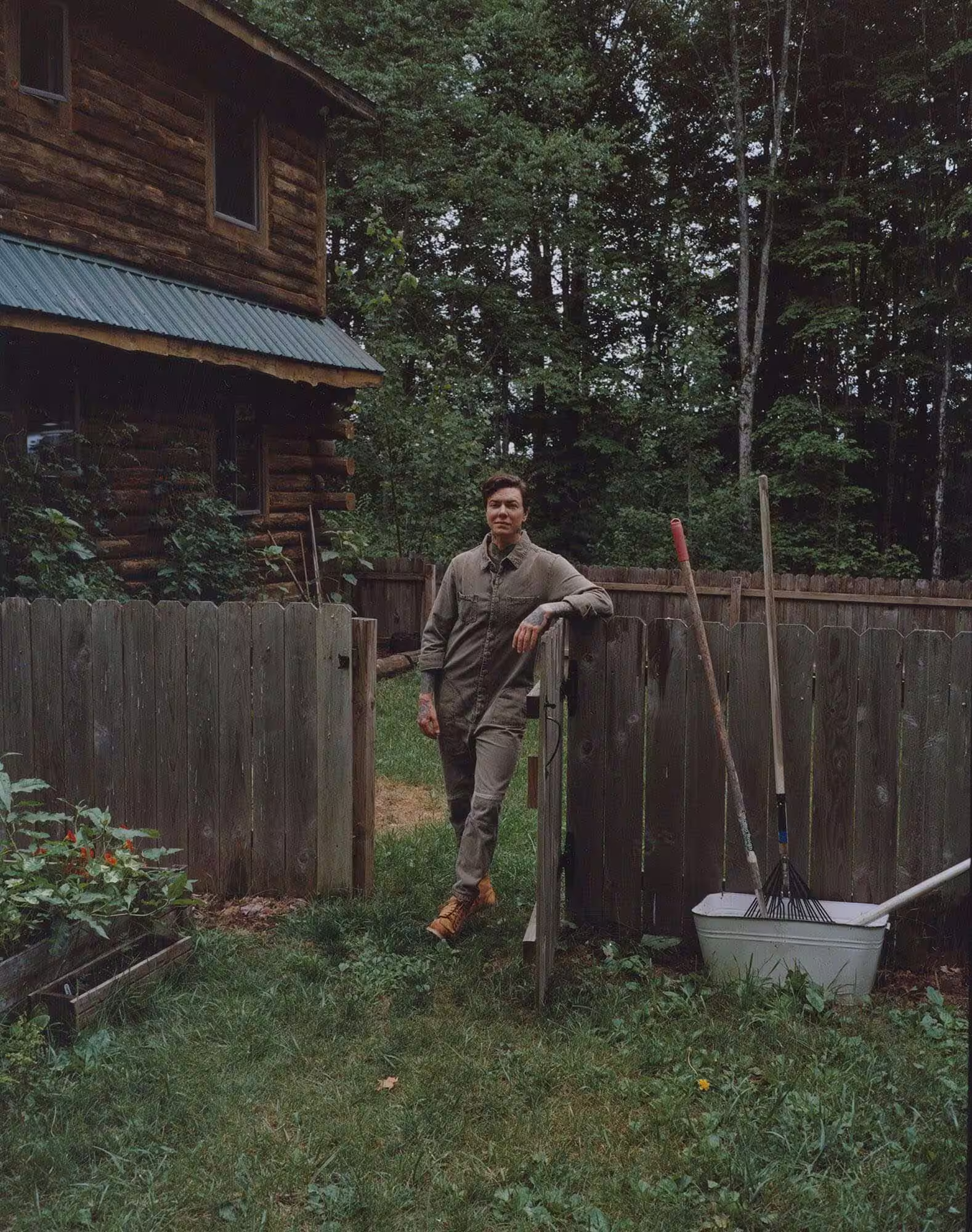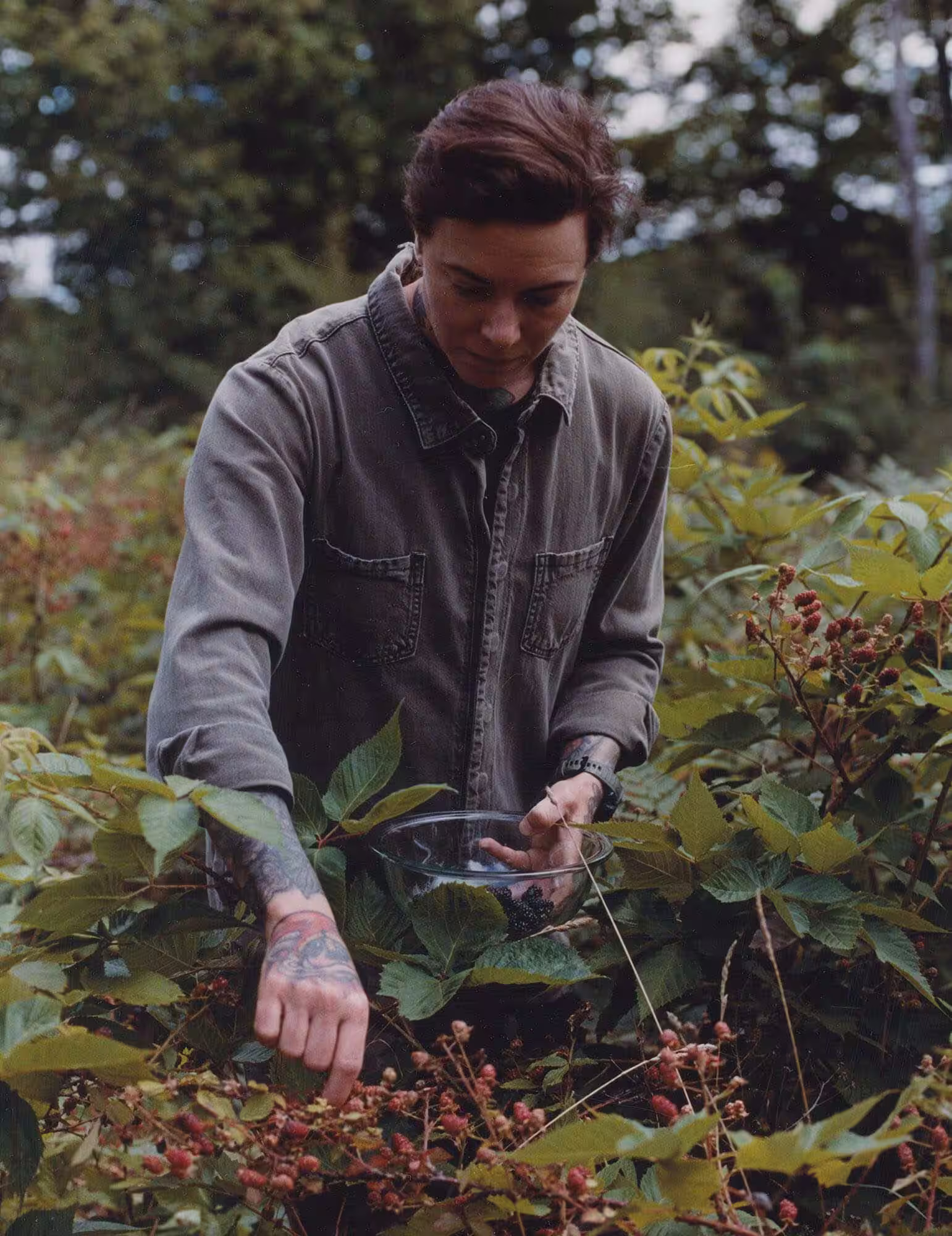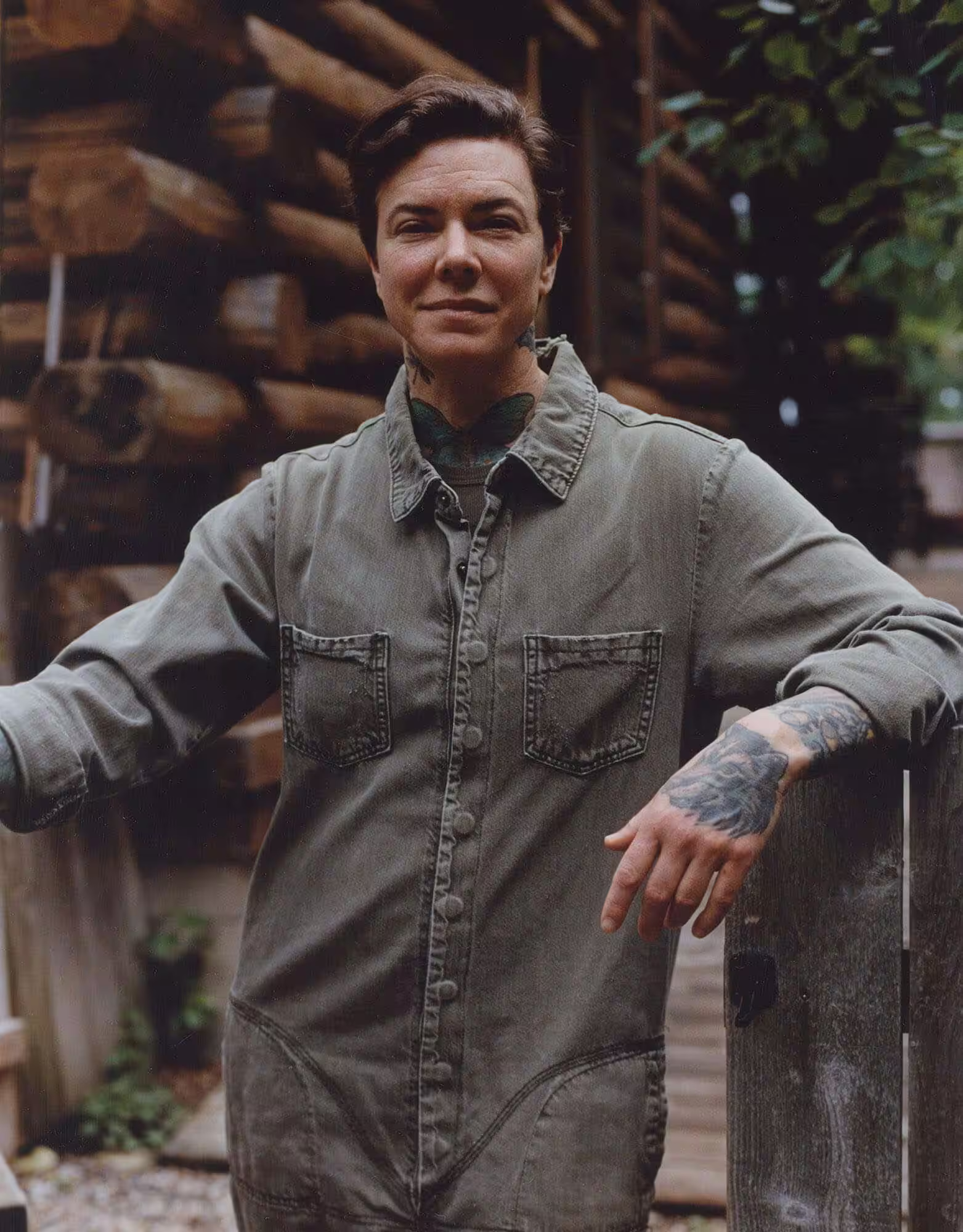I’ve never met anyone like Iliana Regan. The more time I spend getting to know the chef, the more curious I become about them. The more I also feel the same urge to escape my life in the city and write my own love letter to nature. Raised in rural Northwest Indiana, Regan spent their early years searching for wild mushrooms and berries with their steelworker father, exploring the deep woods, and living in an old farmhouse with sporadic access to electricity.
But when Regan isn’t in the kitchen, they are immersed in fresh air, likely surrounded by their three dogs, knee deep in a wild blueberry bush or snaking through trees in search of wood sorrel. They strike a handsome, androgynous presence, soft spoken with a crop of chestnut hair. Tattoos climb up their arms and neck, and their face reveals a childlike wonder and a do-it-yourself pragmatism. Surrounded by foliage, they are at home.
In their 2019 memoir, Burn the Place, they reveal a bucolic life laced with gender despair and a pulsating personal struggle with addiction. A follow-up, Fieldwork: A Forager’s Memoir, released in 2023 and written entirely outdoors, fuses its author’s potent self-exploration with the enduring effects of living off the land. Regan’s stunning and vulnerable precision makes you feel like their memories are somehow yours, too. Like you aren’t alone.
Today, the 45-year-old chef can be found at the Milkweed Inn, a bed-and-breakfast-type concept in the Hiawatha National Forest in Michigan’s Upper Peninsula. Around an hour and a half away from any civilization, with no Wi-Fi or air conditioning, their 150-acre haven features food grown or gathered and cooked in Regan’s own home kitchen. The project is the product of a life’s worth of inspiration and experience, from the chef’s Eastern European roots to their culinary stint six hours away in the Windy City.
Before they made their way into the forest, the chef trained in several iconic Chicago restaurants, including Alinea and Schwa. In spite of their rapid rise in fine dining, their curiosity led them to explore sustainable avenues beyond the traditional kitchen: They sold homemade food and microgreens at farmers’ markets and ran a restaurant out of their apartment. Then they opened the Michelin-starred Elizabeth in Chicago, which featured harvested and foraged ingredients, followed by a second restaurant in the city, Kitsune. Eventually, Regan decided to embrace their back-to-the-land ethos and return to nature.
In early 2019, they opened Milkweed Inn, where reservations now book out one to two years in advance. Down an earthy web of single-lane roads, between Lake Michigan and Lake Superior, the secluded property hosts guests during the summer and fall months in an immersive local culinary experience. A forest of maple, pine, and cedar surrounds the four-bedroom, late-’90s cabin, along with an airstream and two tents.
The adventure for visitors starts immediately upon arrival. “There’s an 11-mile dirt road to get here. We have this meet-up spot at a local Circle K gas station because you can’t really use GPS to get here directly,” says Regan. “After they take that dirt path in, people realize they’ve sort of turned themselves over to us,” they add. They are careful to never take this trust for granted.
It takes an entire week to properly prepare for incoming groups. Regan reads off their prep list of the day so matter of factly that it’s immediately obvious to me that, while this work requires extensive labor, they wouldn’t have it any other way. “Tuesday is usually our foraging day and our housework day,” they say. Today’s list: collect milkweed and blackberries, clean cobwebs and baseboards, pick lettuce from the garden, ferment berries, shine the doors, and pull weeds.
I’ve actually never seen a chef do so much with so little. Regan and their team make breakfast, lunch, and dinner (which is sometimes up to 16 courses) for guests with no gas or proper oven range. Instead, they use a propane two-burner, a small countertop oven, a couple refrigerators, a freezer, a dehydrator, and a small Cryovac machine. Do they have any plans to buy a proper oven one day? “I could get a gas one but then it would limit some of our space, and even having the electric one is kind of hard because we have to run the generator when we use it,” they reason. “Right now my energy is on solar and batteries.”
Next winter will mark the first time the inn will host guests during the snowy months, too. “I’m going to snowmobile people in, maybe?” they reflect. “There’s really good cross-country skiing here, snowmobiling, snowshoeing... I want to create a sort of winter sports retreat.” How does a person who has lived so much life in such a short period of time feel about sharing so much of their story, time, and efforts in such close proximity with their guests? “I tell people: ‘When I’m in my kitchen, I won’t always get out to where you guys are because I’m cooking.’ But I have a couple cool couches in my kitchen that I tell people, ‘Those are there for you to come and sit.’ So once you come into my sandbox, I’m happy to share all my toys.”











.avif)

